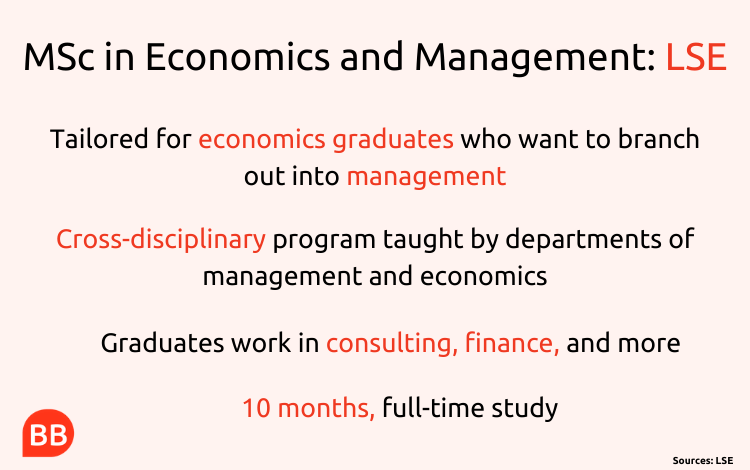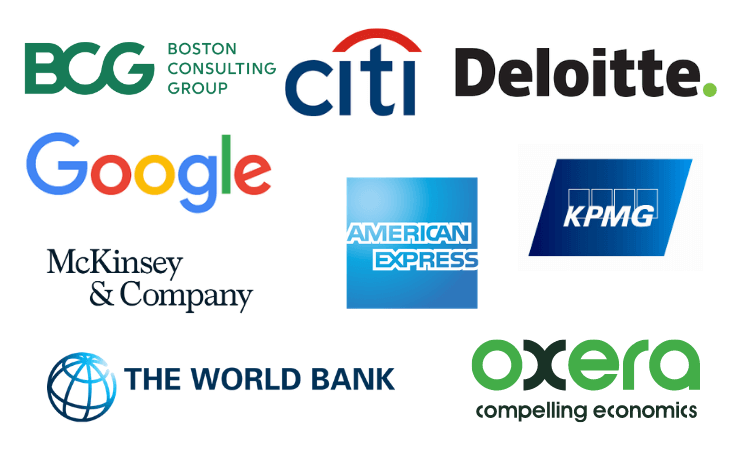LSE's Master's in Economics and Management helps trained economists leverage their skills in managerial settings. Graduates land roles with top consultancies like McKinsey, and with Fortune 500 firms like Google, Amazon, and Citibank.
As a seasoned economist, professor John Sutton knows how to spot a gap in the market.
He's been fascinated by economics ever since his undergraduate days, and although he started his career as an engineer, it wasn’t long until he returned to university to study economics.
”And I never escaped after that,” he says with a laugh.
John’s work in economics has taken him from development projects in sub-Saharan Africa, to acting as President of the Royal Economic Society, to teaching at the London School of Economics (LSE).
While working as Emeritus professor of economics, he discovered that many recent graduates wanted to transfer their skills into management positions—but the right route just didn’t exist.
“We felt there was a gap in the market for students who had economics degrees, and now wanted to broaden their scope by moving into management, without giving up that technical economic knowledge,” he explains.
In response, John and his team developed the MSc in Economics and Management program, which he launched with a colleague 13 years ago.
Since the program's launch, grads have gone on to land jobs at top firms like McKinsey and Google, as well as many Fortune 500 firms.

Who is the program for?
Students who enrol in the Economics and Management program all have one thing in common—a strong educational background in economics. But in other regards, it draws a diverse group.
Around two thirds of students enroll straight after their undergraduate degree, while one third come to the program with one or two years’ work experience.
The class is also diverse in terms of geography. Each cohort draws students from regions including Europe, North America, Asia, and South America.
“The students enjoy each other’s company enormously and learn a lot from each other,” John observes.
What’s on the curriculum?
The MSc in Economics and Management is a cross-disciplinary effort, taught by faculty from both the economics and the management departments of LSE. This combination makes for a learning experience unlike other master’s in economics programs.
“It contains similar analytical content to our MSc in Economics, but there’s a big tilt toward microeconomics and econometrics,” John explains.
Microeconomics offers a working model of how individual firms and markets behave, while econometrics modules teach students to apply statistical methods to economic data. Students can also select elective courses from several areas including strategy, global trade, and applied corporate finance.
Alongside lectures and seminars students attend case study seminars, during which they examine real-world business cases to work out how the economic models and theories they learn in class can be applied to a practical situation.
“You learn quickly by being thrown into the deep end,” says John. “We teach students that theory and analytics can bring you a long way, but there will always be things that aren’t in the model.”
Since its launch 13 years ago, case studies analyzed in class have shifted. The rise of big tech firms has been an important macroeconomic trend, and over the last few years, their impact has been integrated into the curriculum.
“We explore the big five—Google, Apple, Amazon, Microsoft, and Facebook,” says John. “We examine the underlying economic mechanisms that led to their rise, as well as how governments should interact with and regulate them.”
Throughout the program, students learn about these topics by drawing on the insights of globally renowned experts like John and his colleagues. LSE ranked number one in Europe for economics, and second in the world for social sciences by QS in 2020.
What career opportunities are there for graduates?
Graduates from the Economics and Management MSc program go on to a diverse range of careers, John explains.
“The most popular route is to join a consulting firm, but we’ve had graduates work in economic development, international institutions, government departments, and private sector companies,” he says.
Graduate employers include consultancies like BCG and McKinsey, financial services such as JP Morgan, Citi Group, and American Express, tech giant Google, and the World Bank.
“Around 10% of our graduates go on to study a PhD in economics or management,” John adds.
Recruiters for LSE's MSc in Economics and Management

Throughout the program, students have the chance to speak with alumni to learn about different career paths they can take, and which skills from the program they needed to break in.
“Alumni come onto campus to talk to students all the time, and when we ask them what they still use from the program, the single biggest thing that comes up is econometrics,” John explains.
“Graduates working in more technical consulting firms especially say they get a lot of mileage out of that.”
As the impact of coronavirus on the global economy continues to be felt, these econometric tools are more vital than ever, John believes.
“The past few months have revealed the value of models,” he reflects. “We have learned from the modelling of COVID-19 that models are absolutely essential for informing policy—but they don’t give you all the answers.
“There is always some irreducible uncertainty: we may be thrown off course by new and unexpected changes in the situation that force us to reassess. This is the world we grapple with throughout the program.”



